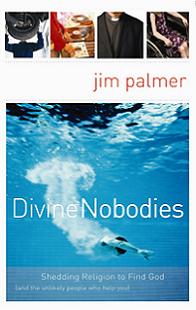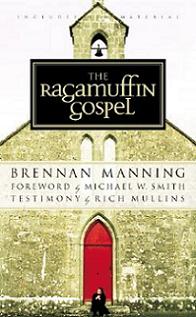During the past few months I’ve begun to feel the reality of my book deadline, as if it were a tangible presence with me at all times. I feel it in the passenger seat while I’m driving. I feel it at the breakfast table when I’m eating my cereal. I hear in telling me to get to work when I’m aimlessly drinking coffee at Starbucks, and see it glaring at me disapprovingly when I’m being a couch potato. My story has become more than my project, it’s become a character in my life, and no matter how afraid I am of sitting down and writing, the fear and insecurities inside me are not going to win out. The story is guiding me, and I’m thankful to God for creating such an entity.
Good stories do have that effect on us don’t they? They are there when we need them the most, when we are inspired to learn, or more conveniently when we want to run into a different reality. I’ve often buried myself in stories when I need to relax, or break away from the pressures of daily life. That’s why my passion is writing.
When I was in college I began reading Terry Goodkind’s “Sword of Truth” series. In interviews he seems shocked when someone refers to his works as fantasy, but I’m sorry, they are nothing but. That’s not to say that they are unoriginal, or not worth reading. On the contrary. They are fabulous stories that have kept me company during some of the most trying times of my life. I am planning on re-reading them again next year, before starting my second book, and look forward to it. But I digress.
I’m saying all of this to preface the fact that tonight Terry Goodkind encouraged me as a writer in ways he won’t ever know. In an interview with USA today, Goodkind answers the questions of some eager fans. His answers, in regards to the art of story, were very helpful to me. I specifically find encouragement in the story of his educational background and how it affected his writing. If you click the link at the bottom of the page you might not like Goodkind anymore as a person. He exalts himself as a pious genius, when he would do well to learn from the writings of a more humble author like Lloyd Alexander. I hope the following quotes encourage you as they have me.
Phoenix, Arizona: At what age did you know you wanted to write and what course(s) in life did you take to see this thru? (schooling etc.)Terry Goodkind: I’ve liked to tell myself stories ever since I was little. As long as I can remember, my most sacred ambition has been to write.
Because I have dyslexia, I had a hard time in school and a hard time with reading. As a result I didn’t like school, didn’t like English classes and didn’t like reading. But I always liked telling myself stories.
I have no formal education whatsoever in writing. Grammar, for example, is something that I learned as a function of logic, because grammar’s purpose is to make meaning clear. Although I don’t know the names of the parts of speech, I obviously know how to write a sentence.
I think writers are born, not made. The first thing I actually wrote was “Wizard’s First Rule,” when I was 45 years old. You might say what you are reading when you read “Wizard’s First Rule” is my education in writing.
Sterling, Virginia: Do you decide on the entire story line before you start writing, or does the story develop as it is written?
Terry Goodkind: A good novel consists of several elements: theme, plot and characterization. Plot is a logical progression of events. You can not tell a coherent, worthwhile story if you are wandering around aimlessly. When I start the process of writing down the story, I understand completely the theme, the plot and the characters.
When you do understand these elements, every passage of your novel, every sentence, will contribute meaningfully to those three elements. It’s absolutely essential that one understands the plot before they begin the process of writing it down.
The actual typing out of the story is not the important or most difficult part, but the result of having carefully thought through the other elements I mentioned.
Boston, MA: I realize this is a difficult question to answer in this format, but can you describe in general terms how you marketed and/or lobbied for “Wizard’s First Rule”?
Terry Goodkind: I got the best agent in the country, and he did those things.
Comment from Terry Goodkind: The reason the best agent in the country wanted to represent me was because he knew that this book would sell itself. In fact, he was correct. Three publishers wanted it, and so my agent held an auction. Ten weeks after I wrote the end of “Wizard’s First Rule,” it sold to Tor books for a record price that still stands to this day.
Phoenix, Arizona: Did not having any formal education in writing hinder your initial publications?
Comment from Terry Goodkind: The reason the best agent in the country wanted to represent me was because he knew that this book would sell itself. In fact, he was correct. Three publishers wanted it, and so my agent held an auction. Ten weeks after I wrote the end of “Wizard’s First Rule,” it sold to Tor books for a record price that still stands to this day.
Phoenix, Arizona: Did not having any formal education in writing hinder your initial publications?
Terry Goodkind: In no way whatsoever. What publishers care about is the same thing readers care about, and that’s a story that keeps you turning pages. And hopefully also characters that uplift and inspire you. I cannot stress enough how irrelevant education is in this process, which is not to say that intellect is irrelevant, but meant to show what I said before, that writers are born and not made.
To read the rest of the interview, which I wouldn’t advise honestly, click the link below…




David
August 31, 2009
Hey Tim good to see you blogging.
I thought I would let you know that your link is not active as in I can’t click on it.
Rich Mullins was asked once how he does it (writes his songs). He said that he has all of these songs in him it’s just whether or not he has the guts to pull them out.
I pray that you will have the guts to write many words in your life and that your words bring others closer in line with God and His ways.